Joint pain during the night is something that bothers a lot of people and is one of the most often causes of sleepless nights. Just falling asleep while one of your joints is aching can be quite difficult, even with the help of pain medication.
Hip pain is probably the worst of the bunch though since it makes it difficult to find a good position that will relieve the pain at least a bit. But, there are things that you can do to help yourself.
In this article I’ll cover the major causes hip pain while sleeping and the ways in which you can treat the pain in your hip.
Possible Causes
To find out how you can solve your hip pain problem, you first need to determine the cause.
There are a ton of different conditions or bad habits that can cause your nighttime hip ache like:
To find out how you can solve your hip pain problem, you first need to determine the cause. There are a ton of different conditions or bad habits that can cause your nighttime hip ache like:
- Bad sleeping positions
- Sleeping on a poor bed or mattress
- Injuries
- Poor workout regimens
- Various medical conditions
- Hip replacement surgery side-effects
- Overuse
- Genetic conditions
But, I had to find out more and here is some of the info I discovered about the more common causes of hip pain.
There are many medical conditions that could cause the ache in the hip but some of the most commons ones are:
-
Arthritis
A condition common among older people that can also affect younger people. It can take many different forms, like osteoarthritis, rheumatoid arthritis and many others. It is characterized by constant pain that gets more severe during the night.
-
Bursitis
This condition is caused by the inflammation of the bursa, small fluid-filled sacks in the joints. It causes sharp pain at first, followed by dull pain that spreads to other areas. It can be more intense after lying or sitting for a long time.
-
Tendonitis
When tendons surrounding the hip bone become irritated, this condition occurs. It is more common as you age since tendons become more flexible. The common symptoms include swelling, redness and difficulty in bending the hip.
-
Sciatica
This nerve condition is cause by the inflammation of the sciatic nerve that extends from the spine to the backs of your legs. During the day you might feel numbness and light pain, while there is intense pain during the night.
This is a no-brainer and probably the first thing most people blame their hip pain on. Of course, it’s not always the prime cause, and you should make sure you don’t accidentally overlook a serious condition.
Some of the bad sleeping habits you might want to fix include:
- Keeping your arms under your head
- Sleeping on your stomach
- Having your head turned to the side
- Crossing your legs while sleeping
- Twisting your body to one side and your legs to the other
There are a few things you can do to fix your sleeping position and relieve your pain. For starters, you could try sleeping on your back or the side that doesn’t hurt, but that might not help in most cases.
Other things you can try include:
- Turning to the side that doesn’t hurt with a pillow between your legs
- Sleeping on your back with a pillow placed at your lower back
- Placing a pillow below your knees while you sleep on your back
There are various other ways you could use a pillow for support during sleep, even for problems with pain in other body parts.
This is another thing people commonly blame for their sleeping aches, and they’re right to do so, since a bad mattress can wreak havoc on your body, especially in the long term.
But what is a bad mattress and how do you know if your pains are caused by one?
Here are a few things that make a mattress bad:
- It’s not supportive enough
- It’s too old and worn out
- It’s not clean enough
- It’s made out of cheap materials
However, many other things that would define a bad mattress – being too soft or too hard, not large enough, not thick enough – are subjective. You should learn how to pick the right mattress for you and stick to it, know what fits your body the best.
For hip pain, you do need to follow one thing in particular – get a mattress that is supportive enough for your body weight. Make sure that you know how to choose the right mattress.
How to Manage Hip Pain
Once I found out what was causing my hip pain I was still left with the question of how to deal with it. As I found out, there are some things that are universally helpful. Here are a few of the best things you can do to help yourself
1Regular Low-impact Exercise
One of the best things you can do to relieve your hip pain or prevent it in the future is to exercise regularly. However, this doesn’t mean that you should go all-out. You should stick to low-impact exercises and make sure to do them regularly. But what are the best exercises you can do?
The best exercises for dealing with hip pain are:
- Walking 3 to 4 hours per week
- Water aerobics with a focus on legs
- Biking at low speeds
- Light aerobics
- Yoga or Pilates
Stretching your hip area from time to time is also a good thing to try. You can go for this easy stretch routine:
- Stand up and grab onto something for balance
- Cross your legs then try to touch your toes and hold the position for 30 seconds
- When you’re done with that, cross your legs the other way and do the same
- Repeat the routine a few times
You can perform these stretches during the day, directly before going to bed or if the pain wakes you up during the night. You might also want to perform them before doing any other exercises.
- The reason exercises help is because they strengthen your muscles and stop your joints from becoming too stiff or too swollen.
- Try to aim for at least 150 minutes of exercise per week. Split them into chunks of 10-15 minutes if you’re finding the movement to be too uncomfortable.
- However, you should consult with your doctor before doing any exercises, to make sure that movement won’t make your condition worse.
2Better Sleep Hygiene
The first thing that might pop into your mind when it comes to this topic is – what’s sleep hygiene? Well, in short, it’s a collection of a lot of little things that you can do to improve your sleep.
The things you can do to improve your sleep hygiene include:
- Getting the appropriate amount of sleep for your age
- Setting up a good bedtime routine and sticking to it
- Avoid naps during the day
- Increase light exposure during the day
- Limit light exposure during the night
- Don’t eat fatty or spicy food before sleep
- Stop ingesting caffeine, stimulants or alcohol before sleep
- Increase the amount of exercise during the day
- Don’t exercise close to sleep time
Overall, improving your sleep hygiene can help you fall asleep easier despite some hip pain you might have and getting more sleep will make you more tolerant to the pain in the future.
3Proper Support during Sleep
To get quality sleep time, you need to sleep on a surface that properly supports your body and conforms to its shape instead of contorting it unnaturally.
However, even if you have a mattress that’s supportive enough under normal circumstances, you might still need a bit of extra support to deal with your hip pain.
There are various ways you can achieve this:
- Get a mattress more supportive than your current one
- Use extra bedding to support key parts of your body
- Place a pillow between your legs
- Uses therapeutic pillows for support
- Line up your head with the rest of your body
- Use a pillow that provide your head with enough support
You can try out many other positions and find the one which fits you the best and makes you feel the least pain.
4Massages
Getting a good massage can do wonders for pain in your hips and getting massages on a regular basis will help even more.
Of course, I’m referring to actual massages, not the “massages” offered in shady newspaper adds.
The reason massages can help is because they loosen up the tightened and sore muscles around the hip which might cause the pain or contribute to its severity.
Here’s what you can do:
- Find a good massage therapist near you
- Start off with a dozen 30-minute sessions
- After you notice how they affect you, get more, longer sessions
- Ask your masseuse to focus on the areas where you feel pain
- Be sure to tell your masseuse if you notice your pain worsening
Of course, keep in mind that you might not get a noticeable difference after just one session – you need at least five or six to see a change.
Be wary of things like acupuncture and other unproven methods, though.
5Medication
If you’re sure you need it, you could get some over-the-counter medication to help with your hip pain, but you should be careful about it.
Ibuprofen-based medicine is one of the best for relieving the pain and the swelling in your hip area, but in some cases, it might not be the best choice. If you’re not sure, consult about it beforehand with your doctor.
Other over-the-counter medicine you could try include:
- Tylenol
- Aleve
- Advil
- Motrin IB
In case over-the-counter medicine doesn’t help you will need to go to the doctor’s and see what can be done.
There are a lot of other treatments that can help, including:
- Hip injections
- Steroid medicine
- Arthritis medicine
- Bursa-removal surgery
- Hip replacement surgery
All of these can be extremely effective, so don’t delay your visit to the doctor if you think you have this condition.
The Conclusion
I tried to cover as much as I possibly could in this article, but I couldn’t go over absolutely everything, though I wish I had the time and space for that.
If you need more info, follow some of the links I’ve included throughout this article or look at some of the other articles on this blog – you’re sure to find something useful in there.
In case this article helped you at least a little bit – and I hope it did – feel free to share it around or just comment about anything you might have liked or disliked about it. I’m open to any criticisms you might have.
Until next time, have a good night’s sleep!


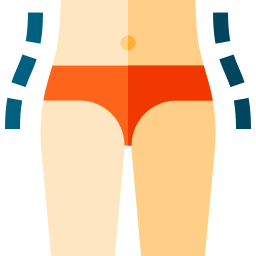


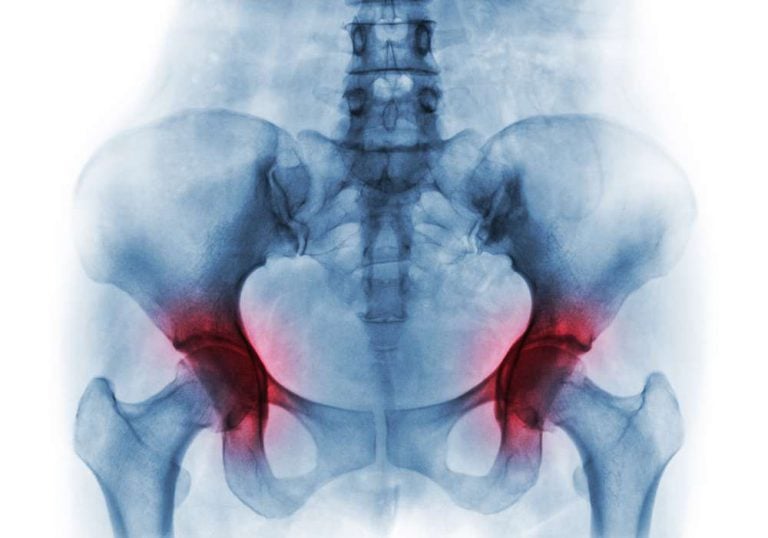

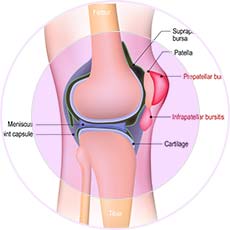
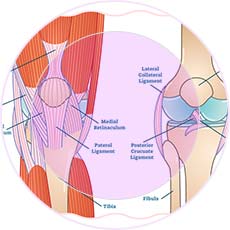
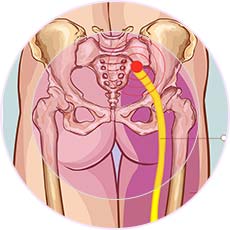
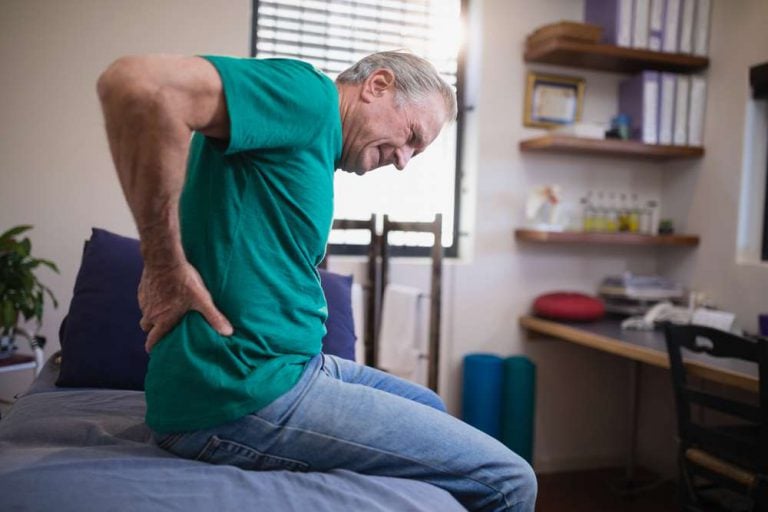

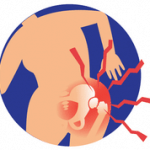
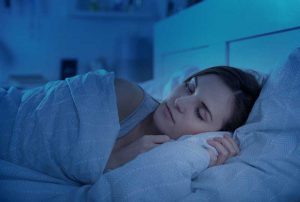
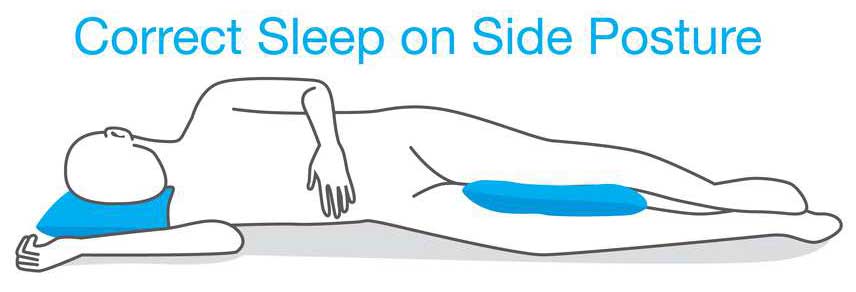
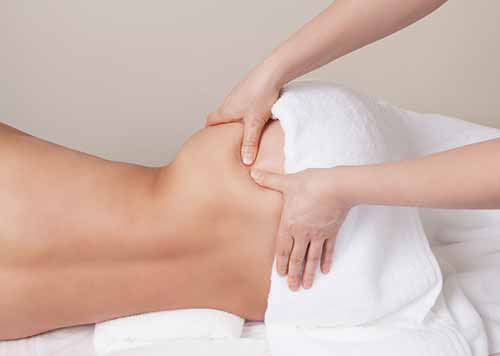
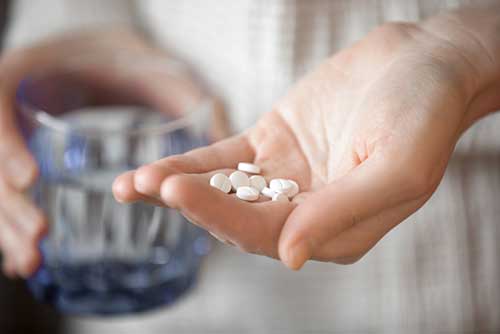









Hello Todd! This blog is very informative. Thank you so much for sharing treatments and exercises. These treatments are very helpful in managing the hip pain.
Hi Todd, this was definitely an informative piece, I’ve covered this myself after experiencing hip pain from squatting as a weight lifter. Not in competition but I’m not a spring chicken either. It got me very interested in the niche itself and how exactly the HIPS are very much connected to everything. I did avoid steroids and hip injections after my first experience with them did not go so well. I tended to lean more toward natural stretching and yoga. Obviously, there is a place for every remedy as everyone’s personalities and therefore choices, are different. Thanks for the post! I research a lot and always keen to enhance my level of understanding where hip pain, well any body pain as I do a lot of exercises, interests me. All the best.
Thank you very much for the kind words, I hope your hip gets better.
Firstly, thanks for sharing this amazing treatments and exercises. I like your all these information. I have back pain so I can learn a lot from it.
Thank you for your comment!
I was surprised to find that walking was really helpful for my hip and reduced the pain a lot (unless I walk too much, there’s sweet spot). Massage hasn’t been that helpful for me though in the long-term. Before bed I usually ice it or apply a pain relief liquid like absorbine jr. Really helps to reduce the chances of it hurting during the night ad when I first wake up.
Thank you for your comment!